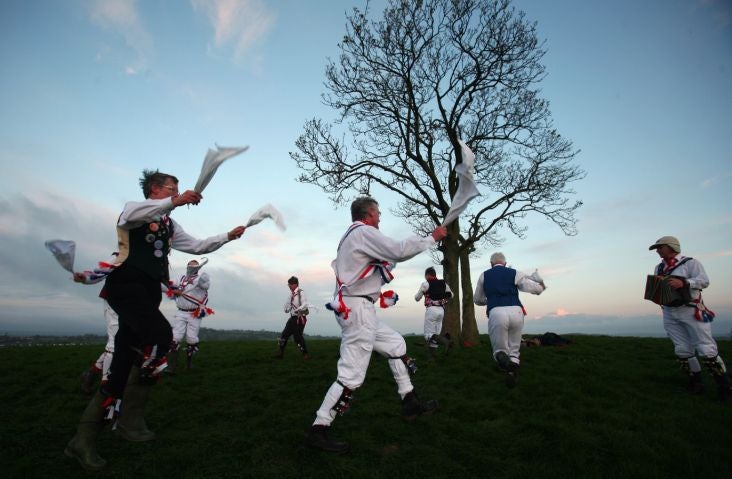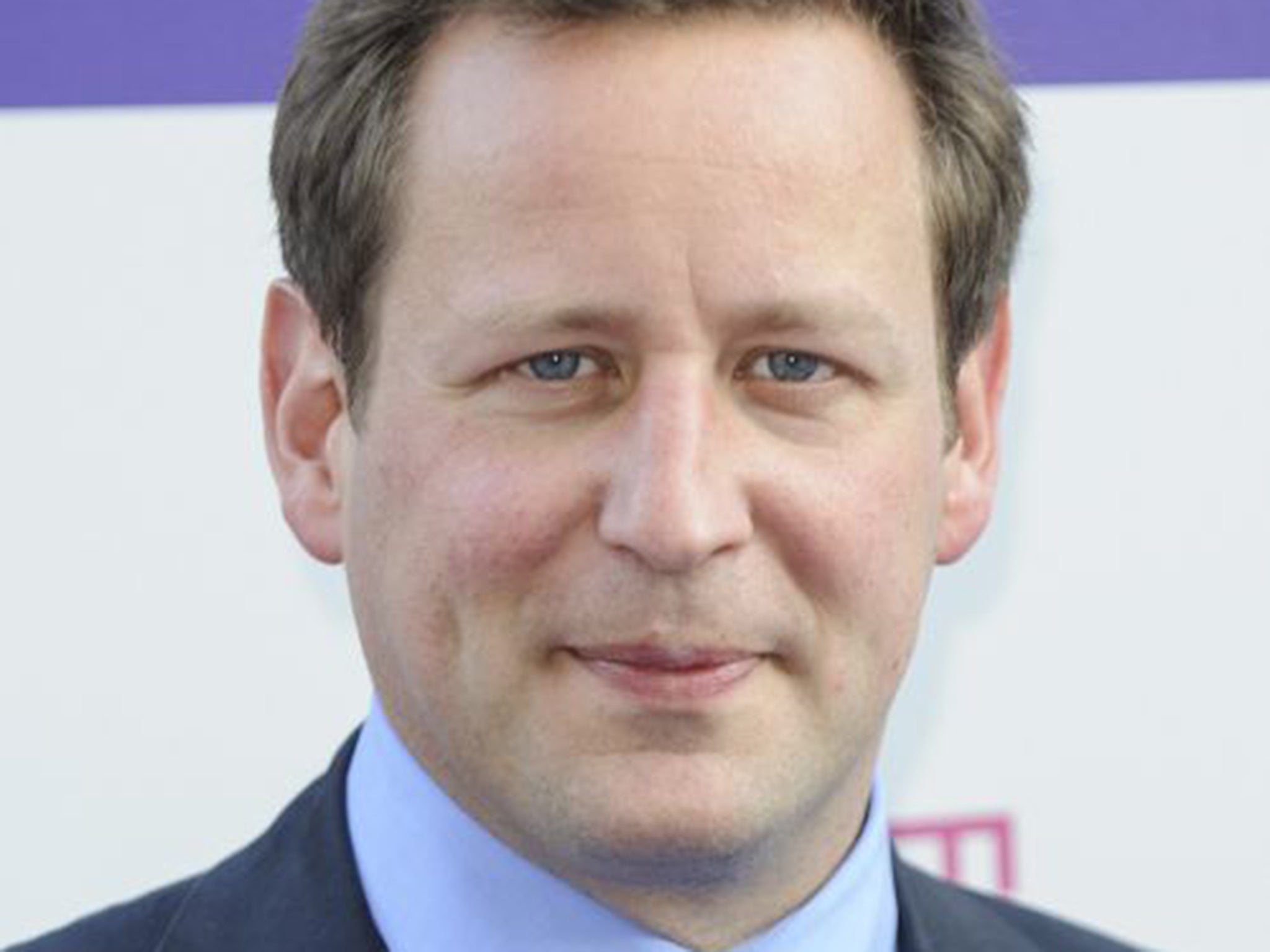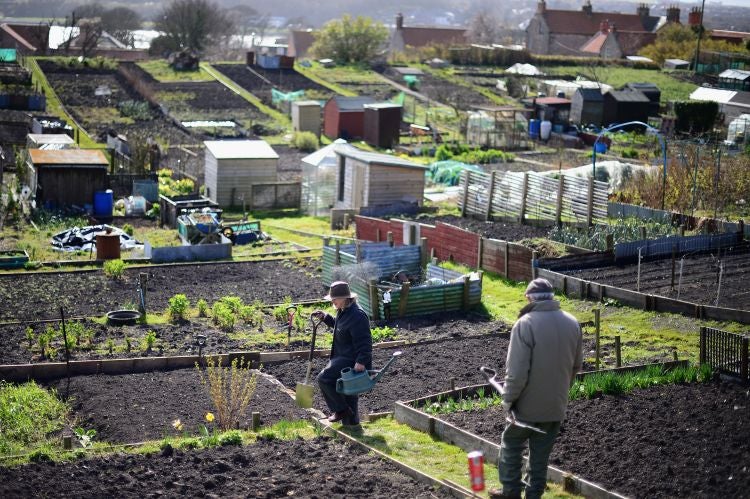Ed Vaizey wants the best of British ideas for an arts and culture renaissance - so here are ours
From bringing back B-movies to stopping working altogether - here's our pick of the best

Your support helps us to tell the story
From reproductive rights to climate change to Big Tech, The Independent is on the ground when the story is developing. Whether it's investigating the financials of Elon Musk's pro-Trump PAC or producing our latest documentary, 'The A Word', which shines a light on the American women fighting for reproductive rights, we know how important it is to parse out the facts from the messaging.
At such a critical moment in US history, we need reporters on the ground. Your donation allows us to keep sending journalists to speak to both sides of the story.
The Independent is trusted by Americans across the entire political spectrum. And unlike many other quality news outlets, we choose not to lock Americans out of our reporting and analysis with paywalls. We believe quality journalism should be available to everyone, paid for by those who can afford it.
Your support makes all the difference.Enjoyment of the arts is “remote from everyday life” and museums, concert halls and art galleries have a “cheerless, unwelcoming air that alienates all but the specialist and dedicated”.
They may ring true, but these words are more than half a century old. The sentiments of the country’s first Arts minister, Jennie Lee, are as relevant to today’s generation as they were for a 1960s Britain that was trying to retain its status in the world and even grow through Harold Wilson’s much-vaunted “white heat of technology”.
Timeless though Ms Lee’s warnings might have been, David Cameron’s Government has decided it is finally time to freshen up the UK’s arts strategy. Ms Lee introduced the first, and until now only, arts White Paper in 1964.
This being the era of the internet, culture minister Ed Vaizey has opened up suggestions for the basis of this strategy to the public. These have been published on a Culture Department online discussion board and include wacky, nationalistic or fantastically retro ideas to get us off our smartphones and enjoy the best of British culture. As ever, spending on the capital gets a bit of a kicking. “Plenty of people outside of London (over heated and populated) with great ideas and energy. Rather than building an even bigger scale of economy there, divest less centrally and give people a go,” says online poster MikeStubbs.

Among the options for Mr Vaizey has been given ahead of publication of the strategy include finding the modern British equivalent of Plan 9 from Outer Space and encouraging people to go Morris dancing. (Not all ideas are likely to make the cut.)
Here’s The Independent on Sunday’s guide to the best of British ideas for an arts and culture renaissance.
Bring back B-movies!
BenCarson asks us to “imagine if before we saw Harry Potter, James Bond or Lord of the Rings, we also got a taste of something more fun, raw, experimental and exciting. A glimpse of the stars of tomorrow, stuttering sparks from younger people who have less well-honed craftsmanship”.
Sadly for those of us who rather like the idea of watching a bloke in a rubber crocodile costume trying to bite a Dracula rip-off, not all comments were favourable. One poster, NewsScape, said we should “not hanker for the past”, pointing out “kids today live in a different dimension”.
The Apprentice … ministerial style
Ever wanted to watch Ed Vaizey and Culture Secretary John Whittingdale host a reality TV show? Well, we didn’t, but this suggestion came from a poster called HonestPoliticians under the headline “Give the punters what they want”.
Apparently, “punters” want this dynamic duo to front an Apprentice-style programme to “showcase and stress test” people who want to lead arts projects. HonestPoliticians even has a name for a show: “The Artrepreneur”.
NewsScape is back again, saying: “This is a far too exciting and sensible suggestion to get noticed by politicians.”
We, though, feel there is too great a risk that Mr Whittingdale and Mr Vaizey could become the next Sir Alan Sugar.

The populist option: stop working
CharlesW bemoans the fact that only four people regularly attend his gardening club, despite sending out newsletters to about 400 local homes.
The solution? Shorten the working week and people will have the time to plant roses and pull-up weeds. CharlesW points to a New Economic Foundation blog that came up with 10 reasons to do just this, including a more productive workforces, lower unemployment, and improved well-being.
Less helpfully, he adds: “It would be nice to see some research where people were asked why they don’t get more involved in cultural activities. I expect some has been done but I don’t know about it.”
Cry God for Harry, England and St George!
Wyrdtimes thinks “too often Englishness is ignored in favour of Britishness… It’s time the UK parliament recognised the majority in this country are English and started promoting English culture”.
And what better place to start than by promoting English folk singing and dancing? If, for some strange reason bopping around a maypole doesn’t float your boat, Wyrdtimes also suggests setting up a BBC England to go alongside the Beeb’s Scottish, Welsh and Northern Irish arms.
Finally, the culture department is told to promote and fund St George’s Day. FreeViewing is impressed but wants the Government to go further: “Ed [Vaizey] & Co could start to raise English awareness by telling (not asking) all town halls to fly the cross of St George.”
A break from the rat race ... in the rat race
“Even looking at a tree is known to reduce stress levels,” says anadance.
We’re unsure about the virtues of staring at a sessile oak or a crack willow, but are rather taken by the broader point of creating “spaces and structures in the hearts of cities which facilitate rest and interaction”.
Green spaces would be livened up by reclining seats selected through design competitions, where people could watch street performers as well as trees.
“The exorbitant prices of property has forced art and culture out,” says anadance. “We need spaces that are inclusive and free to access for all in order to build links, community and an appreciation of life/others and art.”

Culture in the internet age
Culture vultures can show-off their love of the arts by hitting send on a “c-mail”, says IdeaMotel.
By displaying a digital stamp on their messages, c-mailers will show they support local arts and culture. Senders will also be contributing to local arts and culture because every message they send will contribute one penny to a regional fund. In return, they will have the opportunity to vote on how the money collected this way is spent.
“What a fantastic idea. One of the biggest barriers to donating is the time and effort it takes to pledge. To be able to do it without thinking is genius,” commented a1fish. Paultredwell called it “a clever and infectious idea”.
Join our commenting forum
Join thought-provoking conversations, follow other Independent readers and see their replies
Comments